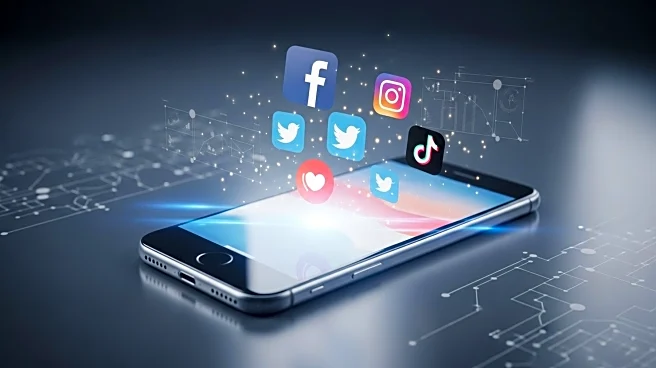What's Happening?
Social media platforms have transformed how people communicate, offering a global network for sharing user-generated content. These platforms, including Facebook, Instagram, and YouTube, provide opportunities for socializing, professional networking, and creative expression. Social media has also become a space for cultural influence, impacting trends in fashion, food, and politics. However, it faces criticism for issues like censorship and the spread of misinformation. In some countries, access to social media is restricted, highlighting its power in shaping public discourse.
Why It's Important?
Social media's impact on society is multifaceted, influencing everything from personal relationships to global movements. It provides a platform for marginalized voices and supports social activism, as seen with movements like #MeToo and #BlackLivesMatter. For businesses, social media offers a valuable marketing tool, enabling targeted advertising and consumer engagement. However, the challenges of misinformation and privacy require careful management to ensure social media remains a positive force.
What's Next?
As social media continues to grow, platforms will likely introduce new features to enhance user engagement and address existing challenges. Businesses will need to adapt their strategies to leverage social media effectively, focusing on authentic content and community building. Policymakers may consider regulations to address issues like misinformation and privacy. The future of social media will depend on balancing its benefits with its risks.
Beyond the Headlines
The ethical implications of social media use are significant, particularly concerning privacy and mental health. The ability to share and access information globally has democratized communication but also raised concerns about data security and the psychological effects of constant connectivity. As social media becomes more embedded in daily life, these issues will require careful consideration and proactive solutions.









